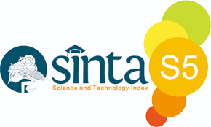Religious Behavior Development in the 4.0 Era: The Islamic Education Challenges
Abstract
The digital age, or Era 4.0, has induced substantial transformations in religious practices and religious education. This paper intends to elucidate the effects of this transition and emphasize the significance of religious education in addressing the ensuing issues. Era 4.0 influences how individuals obtain knowledge, navigate value conflicts, and assimilate into contemporary culture. This paper employs a qualitative methodology grounded in literature analysis. This methodology is suitable for conceptual research of this nature. The literature study approach involves gathering data through the identification and examination of pertinent written sources related to the research topic. The study's findings indicate that, in light of these changes, educators play a crucial role in equipping students to confront a future characterized by transformation. This article emphasizes the significance of 21st-century capabilities in religious education, effective presentation of content aligned with students' interests, and the use of creative, authentic learning techniques. In summary, religious education and the function of educators in navigating the digital age are essential for assisting persons in comprehending and mitigating its effects on religious conduct, thereby equipping them for an evolving future.
References
Choli, I. (2020). Pendidikan Agama Islam Dan Industri 4.0. Tahdzib Al-Akhlaq: Jurnal Pendidikan Islam, 3(2), 20–40. https://doi.org/10.34005/tahdzib.v3i2.891
Choy, J. L. F. (2016). Modelling Relationships between Students’ Academic Achievement and Community of Inquiry in an Online Learning Environment for a Blended Course. Australasian Journal of Educational Technology, 32(4), 106–124. https://doi.org/10.14742/ajet.2500
Davies, J., & Graff, M. (2020). Performance in E‐Learning: Online Participation and Student Grades. British Journal of Educational Technology, 36(4), 657–663.
Dumont, H., & Istance, D. (2020). Analysing and Designing Learning Environments for the 21st Century. In The nature of Learning Using Research to Inspire Practice. Centre for Educational Research and Innovation.
Hajar, A. (2020). Teknologi dan Perkembangan Perilaku Keagamaan: Tantangan di Era Digital. Jurnal Pendidikan Agama Dan Keagamaan, 8(2), 145.
Hajri, M. F. (2023). Pendidikan Islam di Era Digital: Tantangan dan Peluang pada Abad 21. Al-Mikraj , 4(1), 33–41.
Hartono, A. (2018). Peran Pendidikan Keagamaan dalam Mengatasi Konflik Nilai dalam Kehidupan Modern. Jurnal Agama Dan Pendidikan, 5(1), 32.
Hashim, M. H. M. (2020). An e-learning environment embedded with sign language videos: research into its usability and the academic performance and learning patterns of deaf students. Educational Technology Research and Development, 68(6), 2873–2911. https://doi.org/10.1007/s11423-020-09802-4
Hendayani, M. (2019). Problematika Pengembangan Karakter Peserta Didik di Era 4.0. Jurnal Penelitian Pendidikan Islam, 7(2), 183. https://doi.org/10.36667/jppi.v7i2.368
Ifadah, L., & Utomo, S. T. (2019). Strategi Pembelajaran Pendidikan Agama Islam dalam Menghadapi Tantangan Era Revolusi Industri 4.0. Jurnal Al-Ghazali, 2(2), 51–62.
Isnaini, R. L. (2020). Kajian Reflektif: Relevansi Pendidikan Humanis-Religius Dalam Menghadapi Era Revolusi Industri 4.0. Jurnal Pembangunan Pendidikan: Fondasi Dan Aplikasi, 7(1), 26–34. https://doi.org/10.21831/jppfa.v7i1.26945
Johnson, A. (2021). Transformasi Digital dan Dampaknya pada Keyakinan Keagamaan. Jurnal Studi Digital, 7(2), 89.
Kim, J. H. (2018). Religion and digital media: A critical review of current research. Sociology Compass, 12(40), 23.
Lai, C. (2018). The effects of computer-supported self-regulation in science inquiry on learning outcomes, learning processes, and self-efficacy. Educational Technology Research and Development, 66(4), 863–892. https://doi.org/10.1007/s11423-018-9585-y
Lo, V. H., & Ong, S. K. (2016). Religious education in a digital age: A preliminary study on the use of smartphone apps in religious education. International Journal of Cyber Society and Education, 9(1), 53.
Muchtar, N., & Ritchey, J. A. (2014). Preaching, Community, and Convergence: Use of Old and New Media by Progressive Indonesian Islamic Leaders. International Communication Gazette, 76(4–5), 360–376. https://doi.org/10.1177/1748048514524099
Mulyono, M. (2007). Kajian Nilai Pendidikan Islam dalam Teks Tembang Macapat: Studi Nilai Pendidikan Islam Berbasis Budaya. El Harakah, 9(2), 117–133. https://doi.org/http://dx.doi.org/10.18860/el.v9i2.4648
Priatmoko, S. (2018). Memperkuat Eksistensi Pendidikan Islam di Era 4.0. Jurnal Studi Pendidikan Islam Ta’lim, 1(2), 1–19.
Riadi, A. (2019). Tantangan Guru Pendidikan Agama Islam Di Era 4.0. Azkiya, 2(1), 1–10.
Santoso. (2019). Konflik Nilai dalam Pengembangan Pemahaman Keagamaan di Era 4.0. Jurnal Pendidikan Keagamaan, 6(2), 89.
Santoso, C. (2020). Peran Pendidikan Keagamaan dalam Mengatasi Tantangan Informasi di Era Digital. Jurnal Studi Agama, 9(3), 212.
Serdyukov, P. (2017). Innovation in Education: What Works, What doesn’t, and What to Do about It? Journal of Research in Innovative Teaching & Learning, 10(1), 4–33. https://doi.org/10.1108/JRIT-10-2016-0007
Smith, J. (2019). Pengaruh Informasi Online terhadap Pemahaman Keagamaan. Kuartal Studi Keagamaan, 42(3), 315.
Suryanto, B. (2019). Literasi Informasi: Kunci Mengatasi Tantangan Keandalan Informasi. Jurnal Pendidikan Agama Dan Kebudayaan, 12(1), 32.
Susilo, B. (2018). Pendidikan Agama di Era Digital: Transformasi dan Tantangan. Jurnal Pendidikan Keagamaan, 5(1), 32.
Wibisono, A. (2021). Dampak Informasi Palsu pada Perilaku Keagamaan di Era Digital. Jurnal Kajian Keagamaan, 18(2), 145.
Widodo, S. (2019). Integrasi Nilai-nilai Keagamaan dalam Era 4.0: Tantangan dan Peluang. Jurnal Pendidikan Agama, 7(3), 212.
Widodo, S. (2020). Dilema Moral dalam Pertentangan Nilai Agama dan Budaya. Jurnal Studi Agama Dan Budaya, 8(3), 145.














